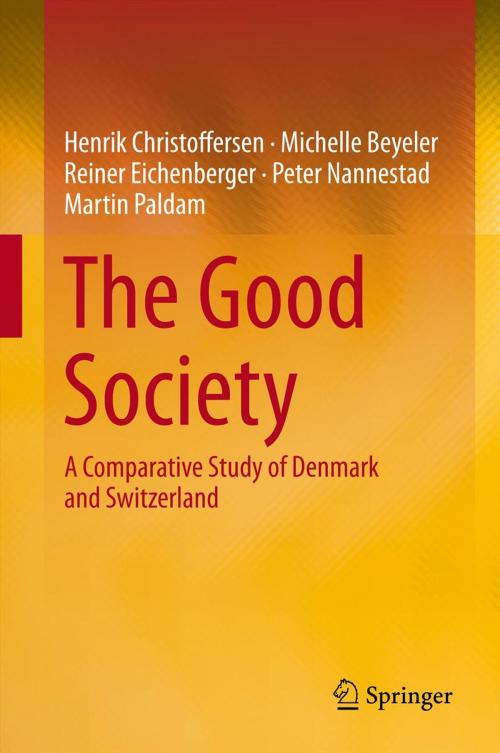The Good Society
A Comparative Study of Denmark and Switzerland
Business & Finance, Economics, Public Finance, Nonfiction, Social & Cultural Studies, Political Science, Politics, Economic Conditions| Author: | Henrik Christoffersen, Michelle Beyeler, Reiner Eichenberger, Peter Nannestad, Martin Paldam | ISBN: | 9783642372384 |
| Publisher: | Springer Berlin Heidelberg | Publication: | November 26, 2013 |
| Imprint: | Springer | Language: | English |
| Author: | Henrik Christoffersen, Michelle Beyeler, Reiner Eichenberger, Peter Nannestad, Martin Paldam |
| ISBN: | 9783642372384 |
| Publisher: | Springer Berlin Heidelberg |
| Publication: | November 26, 2013 |
| Imprint: | Springer |
| Language: | English |
Denmark and Switzerland are small and successful countries with exceptionally content populations. However, they have very different political institutions and economic models. They have followed the general tendency in the West toward economic convergence, but both countries have managed to stay on top. They both have a strong liberal tradition, but otherwise their economic strategies are a welfare state model for Denmark and a safe haven model for Switzerland. The Danish welfare state is tax-based, while the expenditures for social welfare are insurance-based in Switzerland. The political institutions are a multiparty unicameral system in Denmark, and a permanent coalition system with many referenda and strong local government in Switzerland. Both approaches have managed to ensure smoothly working political power-sharing and economic systems that allocate resources in a fairly efficient way. To date, they have also managed to adapt the economies to changes in the external environment with a combination of stability and flexibility.
Denmark and Switzerland are small and successful countries with exceptionally content populations. However, they have very different political institutions and economic models. They have followed the general tendency in the West toward economic convergence, but both countries have managed to stay on top. They both have a strong liberal tradition, but otherwise their economic strategies are a welfare state model for Denmark and a safe haven model for Switzerland. The Danish welfare state is tax-based, while the expenditures for social welfare are insurance-based in Switzerland. The political institutions are a multiparty unicameral system in Denmark, and a permanent coalition system with many referenda and strong local government in Switzerland. Both approaches have managed to ensure smoothly working political power-sharing and economic systems that allocate resources in a fairly efficient way. To date, they have also managed to adapt the economies to changes in the external environment with a combination of stability and flexibility.















